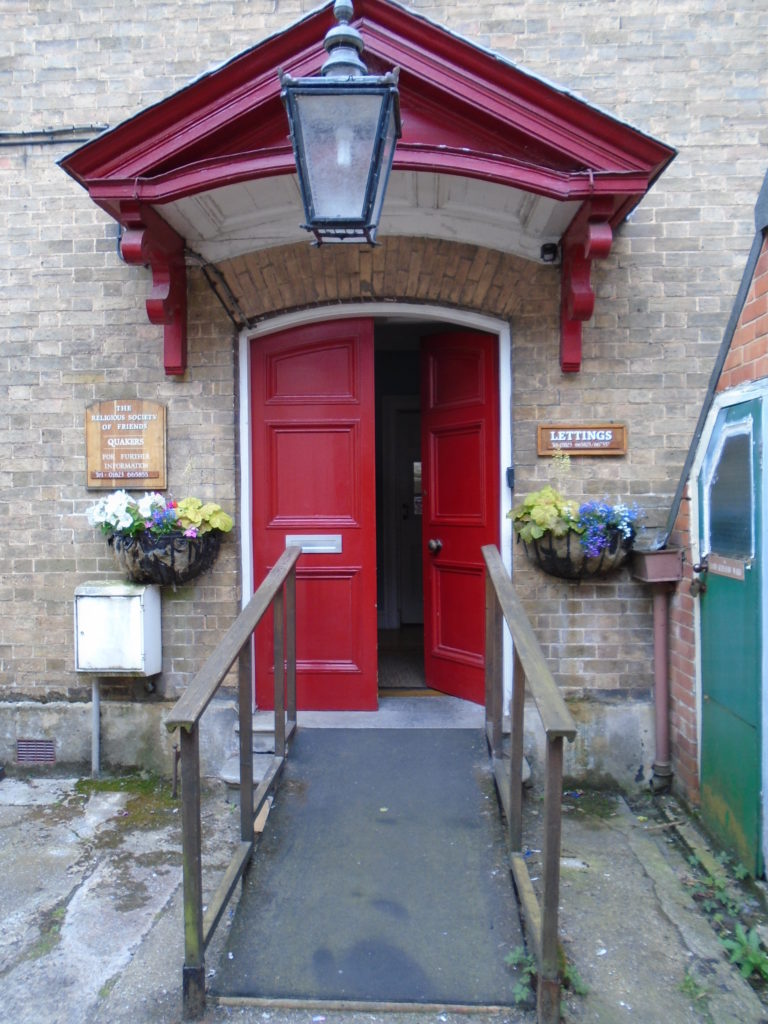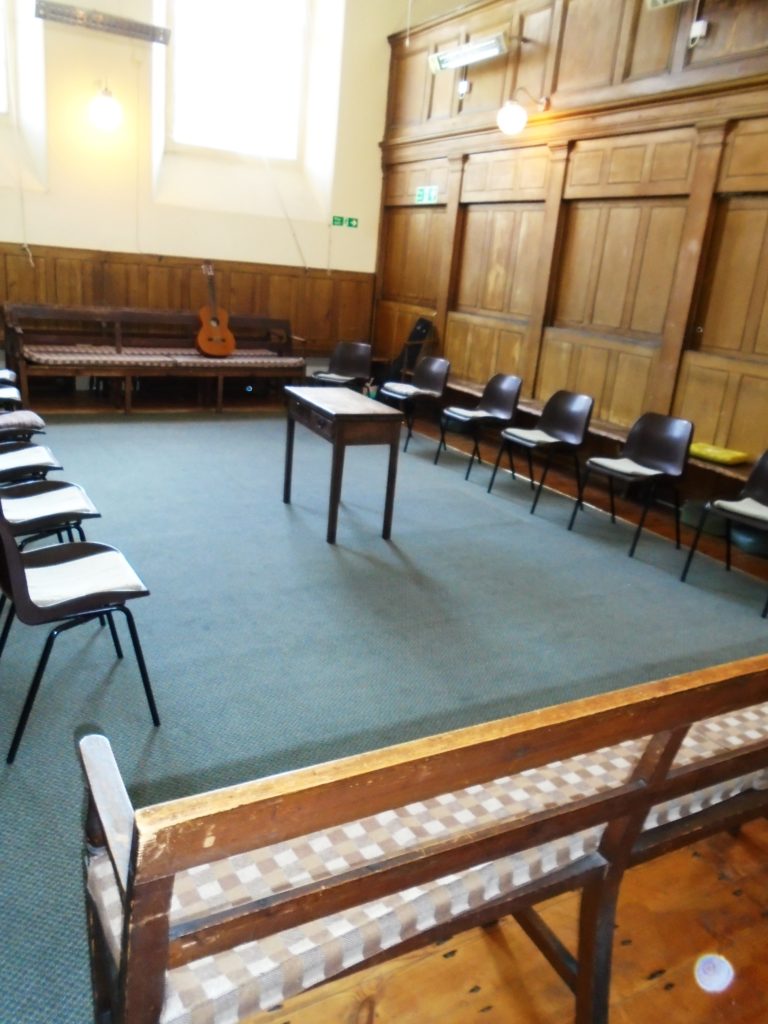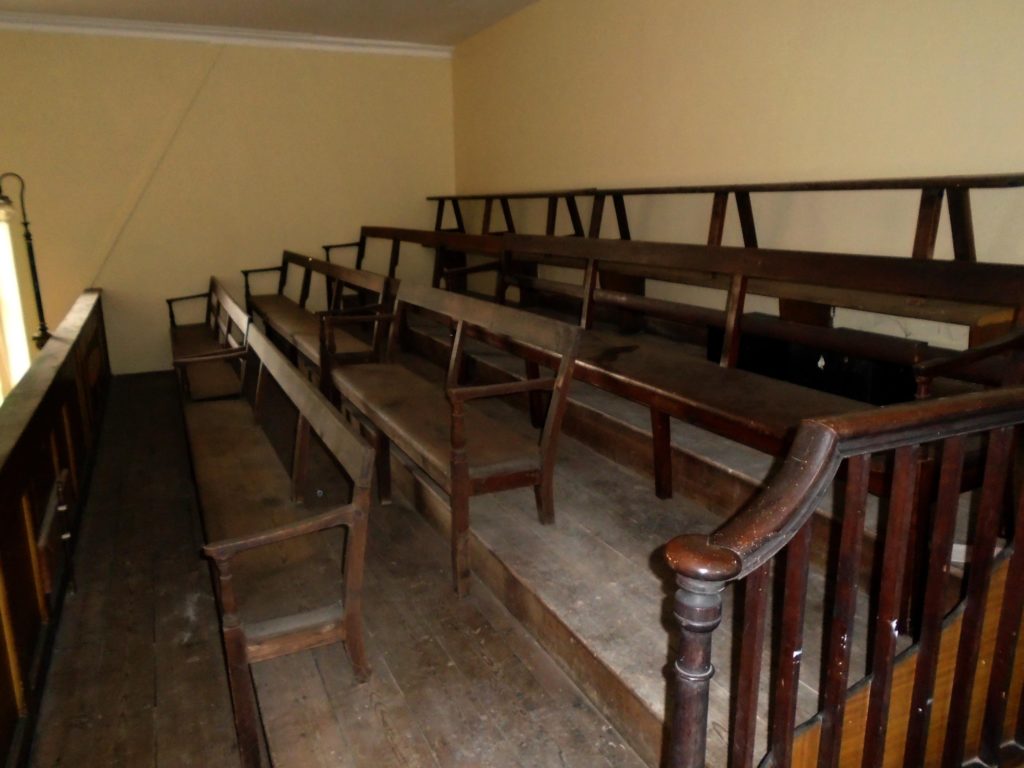There is a long history of Quakerism in Wellington; George Fox, regarded as the founder of the movement, visited the town in 1663. Two prominent early Quakers from the area, John Anderson and Elias Osborne held two meetings in Wellington in 1672 and twelve years later when Elias returned with John Dando to preach in the town a strong Quaker meeting grew up there.
The early Quakers were often persecuted for their beliefs and restrictions were placed on their places of worship, but when these constraints were lifted by an Act of Parliament in 1689 a meeting was registered in the town at the home of Edward Calway and others. The first Meeting House in the High Street dated from 1694, originally on land belonging to Thomas Greenslade, who in 1698 sold and released part of his property for £100, for use as a Meeting House and burial ground ‘for the use of the people called Quakers’. In 1800 the old Meeting House was taken down and rebuilt and this was replaced with the current premises on the same site, with building work being carried out during 1843 and 1844.
Building History
The present Meeting House is a Grade ll listed building and is considered to be of high heritage significance and historical interest. It was designed by Francis Fox of Teignmouth, a railway engineer and at one time assistant to Isambard Kingdom Brunel, later succeeding him as Chief Engineer at the Bristol and Exeter Railway. Fox was responsible for a number of building and engineering projects in the south west; he also designed several railway stations, including Bristol Temple Meads, Taunton and Exeter St. David’s.


Fox’s design for the Meeting House resulted in a plain but distinctive work of classical design, with an interior that is considered to be unusual, ingenious and well conceived. The building work was carried out by George Thorne, a local mason and Robert Blackmore was the carpenter and joiner. The interior of the building has been well preserved with many of the original features remaining, in particular a ministers’ stand, perimeter benches, shuttered partition, panelling and gas lamps.

The lasting association of the Meeting House with the Fox family of Wellington, prominent Quakers and for many years the owners of the woollen mills in the town at Tonedale also adds to its historical importance. As well as being the major employers in the town during the nineteenth century the Fox family improved local watercourses, founded schools and donated the park and recreation ground to the town.
https://historicengland.org.uk/listing/the-list/list-entry/1176261